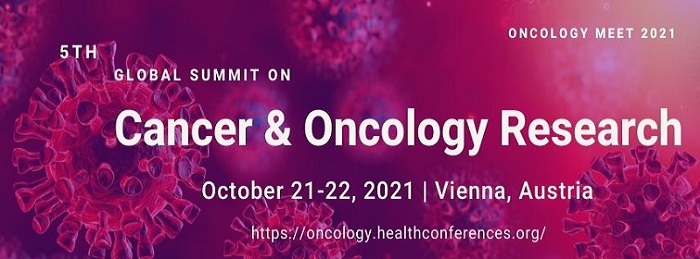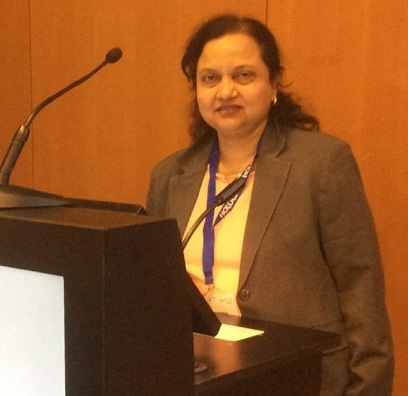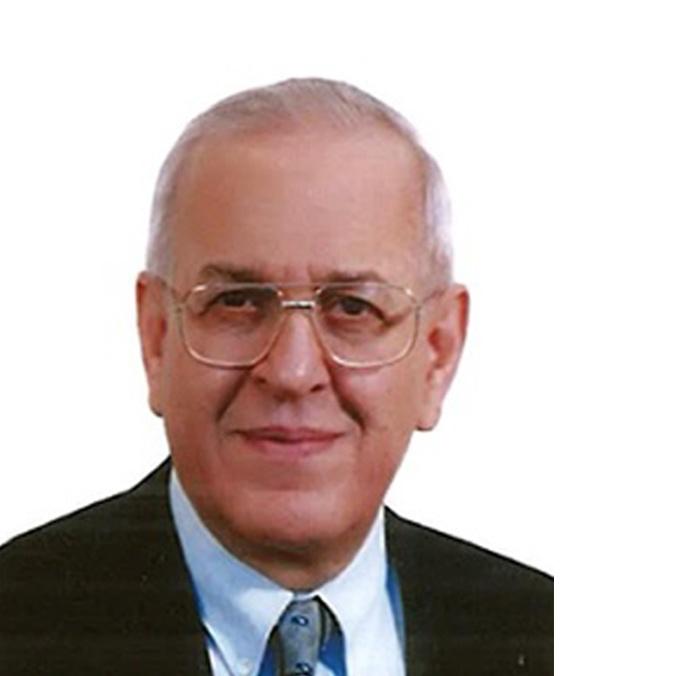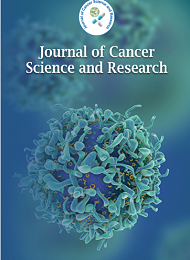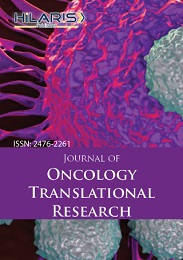Theme:
Oncology Meet 2021
With immense pride and pleasure, Conference series kindly invites all the participants across the globe to attend “6th Global Summit on Cancer and Oncology Research (Oncology Meet 2022) scheduled during April 14-15, 2022 in Sydney, Australia.
Oncology Conferences, includes well-organized scientific sessions, prompt keynote presentations, Cancer Expert Meetings, Oral presentations, Poster Presentations, and Industrial Presentations. The theme for the conference is “Advance Research on Cancer management during COVID-19 pandemic” this promises an outstanding scientific program for featuring well-known speakers and encourages the young researchers for better development.
Oncology 2022 aims to provide optimal health and healthcare to adolescent girls and women, with Cancer knowledge, Screening, Detecting and Diagnosing Cancer, Cancer therapy, prevention and medicine.
Importance and Scope
Oncology 2022 will be the best platform for all the oncologists, hematologists, research scholars, students who are working in this field to exchange their knowledge related to Oncology Research. This international event is an effort to understand the underlying biological procedures which are amended to increase effectiveness, precision, survivability and quality of life.
Oncology 2022 is the premier event that brings together International experts, Training Institutes, Manufacturing Medical Devices Companies, Business Entrepreneurs, Medical Colleges, Researchers, Academicians, Physicians, Post Docs, Students, Pharmacy Industries, Academic scientists, Industry professionals, Diagnostic laboratory professionals and decision makers across the globe to exchange their knowledge, experience and research innovations to build Cancer Research scientists to reduce the global burden of cancer.
Oncology 2022 is an extraordinary event designed for International medical health professionals and oncologists to facilitate the dissemination and application of new research findings related to Cancer. The conference invites participants from all leading universities, clinical research institutions and diagnostic companies to share their research experiences on all aspects of this rapidly expanding field and thereby, providing a showcase of the latest techniques.
Track 1: Oncology
Oncology, branch of drugs, deals with the prevention, diagnosis, and treatment of cancer. Cancer survival has improved because of three main components including improved prevention efforts to reduce exposure to risk factors (e.g., tobacco smoking and alcohol consumption), improved screening of various cancers (allowing for early diagnosis) and improvements in treatment process.
Cancers are often controlled through debate on multi-disciplinary cancer conferences where medical oncologists, surgical oncologists, radiation oncologists, pathologists, radiologists, and organ specific oncologists gather to find the best possible way for a private patient considering the physical, social, psychological, emotional, and financial status of the patient. The first priority of oncologists to keep updated with respect to the latest advancements in oncology, as changes in management of cancer are quite common.
• Medical oncology
• Radiation oncology
• Surgical oncology
Track 2: Cancer Prevention
Cancer prevention is action taken to reduce the risk of getting involved in cancer. This includes maintaining a healthy lifestyle, avoiding exposure to known cancer-causing substances, and taking medicines or vaccines to prevent cancer from developing.
- Lifestyle changes
- Diet & Cancer
- Vaccinations
- Natural Therapy
- Psychological & Social Aspects
Track 3: Cancer Science
Cancer Science is a broader area that includes almost every branch of cancer research and therapy. Previously Cancer was termed as a deadly disease, but now with a development in the cancer research the scenario has changed. It’s a huge success in the cancer research field. There are various therapies invented now to treat and diagnose the cancer. Preventive Oncology Conferences expresses its effort to jettison the cancer from the globe.
- Carcinogenesis
- Clinical Research
- Drug Discovery and Delivery
- Genetics, Genomics, and Proteomics
- Cell, Molecular, and Stem Cell Biology
- Chemotherapy
- Bone Marrow Transplantation
- Hormone Replacement Therapy
- Surgery and Laparoscopy
- Molecular Targeted Therapies
- Natural Therapy and Acupuncture
Track 4: Cancer Cell Biology
A cancer cell grows out of control. Unlike normal cells, cancer cells avoid signals to stop dividing, to specialize, or to die and be shed. Growing in an uncontrollable manner and not able to identify its own natural boundary, the cancer cells may outspread to areas of the body where they do not belong. Preventive Oncology Conferences articulate the evolutions in the cancer science field.
- Oncogenes
- Tumour Immunology
- Tumour Biology
- Tumour Progression
- Carcinogenesis & Mutagenesis
- Tumour Cell Interactions
- Cancer Cell Pathology
Track 5: Organ Defined Cancers
Cancer has differentiated nature in regards to the organ specificity. It has its distinctive characters; the basic processes that cause cancer are similar in all forms of cancers. Based on the cancer location in the organ body, it is named as Organ defined Cancers. The various types of cancers are as follows
- Head & Neck Cancer
- Bone Cancer
- Skin Cancer
- Lung Cancer
- Blood Cancer
- Prostate Cancer
- Cervical Cancer
- Brain Cancer
- Pancreatic Cancer
- Thyroid Cancer
- Kidney Cancer
Track 6: Cancer Metastasis
Metastasis is a pathogenic agent's outspread from an initial site to a different site within the host's body; the term is typically used when refers to metastasis by a cancerous tumour. Newly pathological sites, then, are metastases (mets). It is basically distinguished from cancer invasion, which is direct extension and penetration by cancer cells into neighbouring tissues.
- Metastatic Symptoms
- Pathophysiology
- Organ Specific Targets
- Diagnosis & Management
- Multimodal Therapies
Track 7: Cancer Biomarkers
A cancer biomarker cites to a substance or ongoing process that is indicates the presence of cancer in the body. A biomarker may be a molecule secreted by a tumour or a unique response of the body to the presence of cancer. Genetic, epigenetic, proteomic, glycaemic, and imaging biomarkers can be used for cancer diagnosis, prognosis, and epidemiology. Ideally, such biomarkers can be examined in non-invasively collected bio-fluids like blood or serum.
Preventive Oncology Meetings gives dynamic interactions about the contribution of biomarkers towards cancer therapy.
- Imaging Biomarker
- Clinical Biomarkers
- Genetic Biomarkers
- Predictive Cancer Biomarkers
- Molecular Biomarkers
- Cell Free Biomarkers
Track 8: Cancer Genetics
Cancer is a genetic disease activated by excessive of DNA mutations and epigenetic alterations that leads to uncontrolled cell proliferation and neoplasm formation. Mutation occurs continuously in the body, still it can able to correct most of the mutations. So, it will not be possible to cause cancer with one mutation. Generally, it takes numerous mutations in a lifetime of a body to cause cancer. That’s the reason elder people have cancer, as they have had multiple chances for mutation. Cancer science Meetings explores the new ideas and techniques of cancer therapy.
- Oncogenes
- Proto-oncogenes
- Cancer predisposition
- Tumour Suppressors
- Genetic Cancer Syndromes
- Genetic Counselling & Testing
Track 9: Cancer Diagnosis and Screening
Screening tests can help to find cancer at an initial stage, before identifying the symptoms. Diagnostic testing of cancer includes the tests performed by a pathologist to confirm the cancer stage, tumour size, infected area by the tumour, etc. Oncology Conferences provides a podium to bring forward the novel therapies for cancer.
- Sigmoidoscopy
- Colonoscopy
- Nuclear imaging
- Screening test
- Benefits of screening
- Angiogenesis Inhibitors
- Synthetic Lethality
- Risks of screening
- Molecular Diagnostics
Track 10: Cancer Biopsy
A biopsy is a medical procedure usually done by a surgeon, an interventional radiologist, or an interventional cardiologist concerning extraction of sample cells or tissues for scrutiny to determine the existence of a disease. Biopsy is of two categories, the excisional biopsy, which the affected tissues or cells are removed completely and the incisional biopsy, which some sample is extracted from the affected area for diagnosis. Oncology prevention Conferences paves a way towards a break-through in cancer research field.
- Excisional biopsy
- Incisional biopsy
- Liquid biopsy
- Stereotactic guided biopsy
- Fine needle aspiration
Track 11: Cancer Therapy
There are different methods for cancer treatment. The treatment lies on the location, Stage and grade of the cancer. Bone Marrow transplantation is a therapy that takes place in case of leukaemia lymphoma and myeloma. Radiation therapy, in which the patient is treated with the ionized radiations which destroys the cancer cells. Chemotherapy, where anti-cancer drugs are used to treat the cancer. In Cancer Immunotherapy, the immune system is trigged to treat the cancer. Oncology prevention Therapy Conferences are an endeavour to procure mastery in cancer research field.
- Gene Therapy
- Molecular Targeted Therapies
- Hormone Replacement Therapy
- Bone Marrow Transplantation
- Chemotherapy
- Radiation Therapy
- Biomarkers in cancer detection
- Immunotherapy
Track 12: Targeted Cancer Therapy
Targeted cancer therapy is finest therapies in treating cancer among the various finest therapies, in which cancer cells are treated by targeting and inhibiting the specific molecules which are need for the tumour progression. It can be done by molecular medicine. It’s better than the usual chemotherapy, which only hinders the uncontrollable tumour growth. Cancer Conferences reveals the broad range of knowledge of targeted therapies for treating the cancer.
- Therapeutic Monoclonal Antibodies
- Small Molecule Drugs
- Tyrosine kinase inhibitors
- Hormone Therapies
- Implications of Targeted Therapy
- Targeted Cancer Therapy & Health Economics
Track 13: Stem Cell Therapy
Stem-cell therapy is to treat or prevent a disease or condition by using of stem cells.
Bone marrow transplant is most broadly used stem-cell therapy, but some therapies derived from umbilical cord blood are also in use. Research is in progress to develop various sources for stem cells, as well as to apply stem-cell treatments for neurodegenerative diseases and conditions such as diabetes and heart disease, among others.
Cancer Conferences acts as a podium of gaining knowledge about the new inventions in cancer stem cell therapy.
- Stem Cell Research
- Cancer Stem Cells
- Stem Cells and Tumours
- Stem Cell Transplantation
- Bone Marrow Transplantation
- Cord Blood Stem Cells and Cancer
Track 14: Radiation Oncology
Radiation oncology is a medical speciality which involves the controlled use of radiation to treat cancer either for cure, or to reduce pain and other symptoms caused by cancer. Radiation therapy which is also called radiotherapy, is the term used to explain the actual treatment delivered by the radiation oncology team. Oncology Conferences discloses the innovations in cancer therapy field.
- Localized cancer
- Breast cancer
- Metastatic cancer
- Ovarian cancer
- Prostate cancer
Track 15: Surgical Oncology
Surgical oncology is a field of cancer care which focuses on using surgery to diagnose the stage and treatment of the cancer. Surgical oncologists can also perform palliative surgeries to help control pain, increase patient’s comfort level and manage cancer-equivalent symptoms and side effects.
- Trans anal Endoscopic Microsurgery
- Robotic surgery
- Reconstructive surgery
- Laparoscopic cancer surgery
- Cyto reductive surgery with HIPEC
- Sarcoma surgery
Track 16: Tumour Immunology
Tumour immunology explains the interconnection between cells of the immune system with tumour cells. Understanding these interconnections is essential for the development of new therapies for the treatment of cancer. Cancer Therapy Conferences inculcates the best knowledge of the therapies and treatments in the cancer field.
- Cancer Specific Antigens
- Tumour Immunogenicity
- Antitumor Immune Response
- Tumour Elimination`
- Cancer Immuno surveillance
- Cancer Immunology and Chemotherapy
- Cancer & Viruses
Track 17: Cancer Pharmacology
Drugs showed good results in animal body, when used in cancer patient of less tumour burden, it was not so effective. In such cases the tumour burden can be initially reduced by cancer surgery and chemotherapy, this is called as adjuvant therapy. Cancer prevention Conferences gives a perception about the new strategies emerging in cancer therapy.
- Tumour Targeting Strategies
- Hormonal & Biological Agents
- Cancer Drug Targets
- Clinical Trials
- Anticancer Therapeutics
- Preclinical Models for Drug Evaluation
- Research and Analytical Methods
Track 18: Cancer Alternative Medicine
The alternative medicine for cancer is given for the cancer patients as an alternate to the existing therapies. Among some of therapies the Massage therapy have showed some good results but on temporary basis. Other therapies like supportive psychotherapy and hypnosis shows weak results. Preventive Oncology Conferences helps to analyses the concurrent ways in cancer therapy.
- Gerson therapy
- Acupuncture
- Integrative Medicine
- Dietary Supplements and Herbal Remedies
- Biologic Treatments
Metabolomics is one of the sciences in systems biology, which is global assessment and authentication of endogenous small-molecule biochemical (metabolites) within a biological system.
Metabolomics deals with study of the chemical fingerprints left by a metabolite during metabolism. In cancer cells, it will be very useful to study the metabolite for drug development. Many inventions are being made in cancer metabolomics, one of them is the non-invasive authentication of metabolic biomarkers from the fluid of the body of cancer patients.
- Tumour cell proliferation
- Genomic Studies
- Cancer Genome Atlas(TCGA)
- Genomics Tools
- Metabolite Pathways
- Metabolic Technologies
- Data Interpretations
- Metabolomics as Biomarker
Track 20: Tumour Virology
Tumour virology which deals with the specific virus infections and cancer, oncogenes, tumour suppressors, oncogenic cofactors, disruption of innate, adaptive immune responses, latency, viral mimicry, piracy of cellular regulatory genes, genomic instability and role of non-coding RNAs in viral pathogenesis. The main purpose of this research is to develop viral vectors for human cancer gene therapy and to progress vaccine strategies for treatment of viral-associated cancers.
- Viral Mimicry of genes
- Principle investigator
- Viral Therapy
- Viral associated Cancers
Track 21: Cancer Nanotechnology
Cancer nanotechnology deals with nanotechnology concerned with the application of both nanomaterials (such as nanoparticles for tumour imaging or drug delivery) and nanotechnology approaches (such as nanoparticle-based theranostics) for the diagnosis and treatment of cancer.
- Nanoparticle packages
- Energy absorption and radiation
- Laser ablation
- Active pharmaceutical ingredients
- Passive Tumour Accumulation
- Active Tumour Targeting
Track 22: Oncology Nursing
The people who are associated with taking Special care of cancer patients are oncology nurses; this can be termed as oncology nursing. The oncology nurses will provide counselling to the cancer patients. Cancer nursing study is to improve the expansion of the nursing vocation. It’s an exclusive course of medical education which gives both theoretic and practical training to make them as nursing care experts. Cancer science Meetings will create a new revolution in cancer science and cancer nursing field.
- Nursing Education
- Nursing Management
- Nursing Law
- Clinical Nursing
- Critical Care
- Continuing Nursing Education
Track 23: Cancer Therapeutics and Novel Approaches
The already existing treatments in cancer treatment are severely related to many side effects and are highly poisonous, which will reduce the quality of life. This integrates the invention of novel approaches in cancer treatment. Cancer immunotherapy is the most important approach, in which the activation of immune system occurs for the treatment of cancer. Traditionally the Cytokine therapy considered as a backbone of immunotherapy. The vaccines like peptide vaccines, tumour cell vaccines, immune cell vaccines, cancer vaccines are appraise as a novelist finding in cancer field. The adoptive cell therapy in hematologic malignancy is deliberated as a new practice for cancer therapy. The molecular cancer therapy is also a novel approach in cancer treatment. Tumour Immunology plays a major role in verdict of new discoveries for cancer therapeutics. Preventive Cancer Conference expresses its effort to combat cancer.
- Cancer Epigenetics
- Molecular Profiling Techniques
- New Biologics & Vaccines
- Chemical Proteomics
- Combination Strategies in Immuno oncology
- Novel Biomarker Discovery
Track 24: Cancer Mode of Existence
Estimations are that in 2018, 18.1 million new cases of cancer and 9.6 million deaths occur globally. Almost about 20% of males and 17% of females are yet to get cancer at some point in time while 13% of males and 9% of females will die from it.
Cancer mainly caused by both internal factors (such as hormones, inherited mutations and immune conditions) and environmental factors. The major lifestyle factors include alcohol, tobacco, diet, obesity; infectious agents, environmental pollutants, and radiation increase the mortality of cancer.
- Alcohol and Tobacco
- Diet and Obesity
- Environmental pollutants
- Radiation
- Magnetic Resonance Imaging
- Endoscopic Ultrasound
- Tumour Molecular Profiling
- X-ray
- Nuclear Medicine Imaging
Track 25: Cancer Case Reports
The case report gives thorough details about the diagnosis, treatments and further follow ups and the demographic profiles of the cancer patient. The literature review of other patients can also be present in a report for the reference. The case reports in cancer metastasis plays an important role for treating the affected patient. In another way, it also makes a good cancer therapy database which will be useful for education and research. The cancer pathogenesis and its effects can also be represented in a case report. The case report acts as anecdotal evidence, which is considered very personal. Statistical sampling of patients can also be present in case report for reference. It is termed as a patient history, which is more helpful in case of cancer.
- Unexpected/Unusual Conditions
- Rare Surgical Condition of a cancer case
- Novel Surgical Procedure
- Adverse Effects
- Oncologists
- Radiologists
- Immunologists
- Clinical Researchers
- Nursing
- Malignancy Researchers
- Researchers
- Youthful Researchers
- Undergraduates
- Biomarker Associations and Societies
- Business Entrepreneurs
- Preparing Institutes
- Programming creating organizations
- Information Management Companies
- Pharmaceutical Companies
- Diagnostics Companies
Cancer is a disease characterized by the abandoned growth and spread of abnormal cells. If the growth of abnormal cells is not controlled, it can result in death. In Worldwide, one in seven deaths is due to cancer. Cancer causes more deaths than AIDS, tuberculosis, and malaria. According to income when countries are grouped, cancer is the second leading cause of death in high-income countries (following cardiovascular diseases) and the third leading cause of death in low- and middle-income countries (following cardiovascular diseases and infectious and parasitic diseases).
Cancer Diagnostics Market:
The global cancer diagnostics market size was estimated at USD 144. 4 billion in 2018 and is expected to register a CAGR of 7.0% over the projection period. Growing frequency of oncologic cases, constant technological advancements in diagnostics, and increasing demand for effective screening tests are some of the major factors prompt demand for screening tools and techniques all over the world. Rising awareness and supportive various government initiatives are some add on factors expected to uplift market growth during the projection period.
Cancer is one of the leading seed of deaths across the globe and frequency of the disease has been escalating at an alarming rate. Hence, healthcare professionals are researching on development of effective diagnostic and solutions to check regularity level. Early detection enhances the rate of success of treatment regimens. Therefore, healthcare agencies and market players, through various awareness programs, are encouraging routine check-ups.
Cancer Diagnostic Market, By Technology
As per the technology basis, the cancer diagnostics market is bisected into instrument-based and platform-based. In 2015, the instrument-based segment was predicted to account for a major share of the cancer diagnostics market, by product.
1) Platform Based:
- In situ Hybridization
- Flow Cytometry
- Next-generation Sequencing
- Microarrays
- Others
2) Instrument Based:
- Biopsy
- Mammography
- PET
- Ultrasound
- MRI
- CT
Cancer Diagnostic Market, By Application
On the basis of application, the diagnostics market is fractionated into breast cancer, lung cancer, colorectal cancer, melanoma, Leukaemia and others. Breast cancer application is expected to account for a broader portion of the cancer diagnostics market.
Cancer Diagnostic Market, By Region
As per the region, the cancer diagnostics market is classified into North America, Europe, Asia, and Rest of the World. Rest are includes Latin America, Pacific countries, and Middle East and Africa. North America is projected as the largest share in the cancer diagnostics market, followed by Europe and Asia.
Some of the major performers in the global cancer diagnostics system market are:
- Sanofi (France)
- Novartis (Germany)
- Pfizer Inc. (U.S.)
- Eli Lilly & Company (U.S.)
- ImClone Systems Inc. (U.S.)
- GlaxoSmithKline (U.K)
- AstraZeneca (U.K)
- Schering-Plough (U.S.)
- Boehringer Ingelheim (Germany)
- Bristol-Myers Squibb
- Teva Pharmaceuticals Industries (Japan)
- F. Hoffmann-La Roche Ltd (Switzerland)
- Merck & Co., Inc. (U.S.)
- Chemo Espana SL (Spain)
- CELGENE CORPORATION (U.S.)
- Amgen Inc (U.S.)
- Bayer AG (Germany)
- Takeda Pharmaceutical Company Limited (Japan)
Major Medical Universities
Worldwide
- Harvard University
- University of Minnesota
- Mayo Medical School
- Pittsburgh School of Medicine
- Yale University
- University of Cambridge
- University of Oxford Stanford University
- Yale University
- Emory University
- John Hopkins University
- Kings College London
- Feinberg School of Medicine
- University of Wisconsin
- UNC School of Medicine
- Karolinska University
In Europe
- University of Sheffield
- University of Manchester
- University of Lisbon
- King's College London
- Newcastle University
- University of Nottingham
- University of Glasgow
- University of Milan
- University of Cambridge
- University of Bristol
- University of Aberdeen
- Virginia Cancer Institute
- University of Warwick
- University of Oxford
- University of Edinburgh
- Sapienza University di Roma
- Durham University
- Cardiff University
In USA
- University of Alabama School of Medicine
- Keck School of Medicine of University of Southern California
- Loma Linda University School of Medicine
- University of California, San Diego School of Medicine
- University of Arizona College of Medicine – Tucson
- California North State University College of Medicine
- Loma Linda University School of Medicine
- University of California, San Diego School of Medicine
- UCSF School of Medicine
- University of Connecticut School of Medicine
- George Washington University Medical School
In Germany
- Heidelberg University
- Rwth Aachen University
- Lübeck University
- Witten/Herdecke University
- Magdeburg University
- MÏ‹nster University
- Würzburg University
- TÏ‹bingen University
- Freiburg University
- Leipzig University
In Berlin
- MSB Medical School Berlin
- Berlin-Brandenburg School for Regenerative Therapies
- Humboldt University of Berlin
- Institute of Forensic Medicine at the Charité
Major Associations
Worldwide
- American Association for Cancer Research
- Virginia Cancer Institute
- American Brain Tumor Association
- American Society of Paediatric Haematology/Oncology
- Association of Cancer Physicians
- American Childhood Cancer Organization
- American Society of Clinical Oncology
- Australasian Lung Cancer Trials Group
- International Cancer Research Partnership (ICRP)
- American Association for Cancer Research (AACR)
- American Society of Clinical Oncology (ASCO)
- International Agency for Research on Cancer (IARC)
- Cancer Society of New Zealand
- Irish Cancer Society
- Australian Cervical Cancer Foundation
- Medical Centre Cologne
- Cancer Research UK
- Australian Prostate Cancer Research
- Peter McCollum Cancer Centre
- The European Cancer Organization (ECCO)
- German Cancer Research Centre
In Europe
- Association of Cancer Physicians
- British Gynaecological Cancer Society
- Children with Cancer UK
- United Kingdom Association of Cancer Registries
- Prostate Cancer UK
- UK Oncology Nursing Children’s Cancer and Leukaemia Group Society
- Childhood Cancer Research Group Cancer Focus BASO
- The Association for Cancer Surgery
- Northern Ireland Cancer Research UK
In USA
- American Cancer Society
- Relay for Life - American Cancer Society
- American Childhood Cancer Association
- Foundation for Women's Cancer
- American Brain Tumor Association
- The kidney cancer association
In Germany
- German Cancer Aid
- German Cancer Research Center
- German Society for Radio-Oncology
- German Childhood Cancer Registry
- German Childhood Cancer Foundation
- Society of Epidemiological Cancer Registries in Germany
- Society for Padiatric Oncology and Hamatology
- Cancer Society Rhineland-Palatinate eV
- Center for Cancer Registry Data
- Cancer Registry Baden-Württemberg
Conference Highlights
- Oncology
- Cancer Prevention
- Cancer Science
- Cancer Cell Biology
- Organ Defined Cancers
- Cancer Metastasis
- Breast Cancer
- Cancer Genetics
- Cancer Diagnosis and Screening
- Cancer Biopsy
- Cancer Therapy
- Neonatal and Perinatal Cancer
- Stem Cell Therapy
- Radiation Oncology
- Surgical Oncology
- Tumour Immunology
- Cancer Pharmacology
- Cancer Alternative Medicine
- Cancer Metabolomics
- Tumour Virology
- Cancer Nanotechnology
- Oncology Nursing
- Cancer Therapeutics and Novel Approaches
- Cancer Mode of Existence
- Cancer Case Reports
To share your views and research, please click here to register for the Conference.
To Collaborate Scientific Professionals around the World
| Conference Date | October 21-22, 2021 | ||
| Sponsors & Exhibitors |
|
||
| Speaker Opportunity Closed | |||
| Poster Opportunity Closed | Click Here to View | ||
Useful Links
Special Issues
All accepted abstracts will be published in respective Our International Journals.
- Journal of Oncology Translational Research
- Journal of Cancer Science and Research
- Breast Cancer: Current Research
Abstracts will be provided with Digital Object Identifier by

